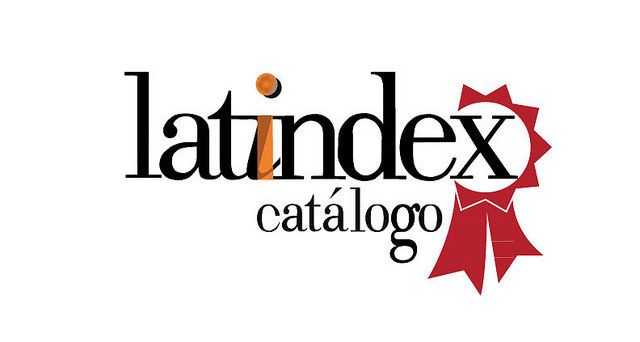Populism and Religion in Brazil and Mexico. A Brief Reflection
DOI:
https://doi.org/10.29340/en.v3n6.187Keywords:
Populism, people, pentecostalism, Brazil, MexicoAbstract
The relationship between populism, religion and politics is analyzed, both on a theoretical level and by applying it to the cases of Brazil and Mexico. The point of departure is a critical reading of the article by Joanildo Burity on the “Pentecostal people” in Brazil and of the relevance of using Laclau's theory of populism to explain this case. The same arguments are then used to analyze, in contrast, contemporary Mexican populism, embodied in President Andrés Manuel López Obrador, highlighting its religious background.
Downloads
References
Aguilar Camín, Héctor (1988). Después del milagro. México: Cal y Arena.
Arato, Andrew (2013). “Political Theology and Populism”, en Social Research, vol. 80, núm. 1, pp. 143-172. DOI: https://doi.org/10.1353/sor.2013.0020
Arato, Andrew (2017, 1 de septiembre). “How We Got Here? Transition Failures, Their Causes, and the Populist Interest in the Constitution”, en ssrn. Recuperado de http://dx.doi.org/10.2139/ssrn.3116219, consultado el 31 de agosto de 2020. DOI: https://doi.org/10.2139/ssrn.3116219
Arato, Andrew y Jean Cohen (2017). “Civil society, populism and religion”, en Constellations, An International Journal of Critical and Democratic Theory, vol. 24, núm. 3, pp. 283-295. https://doi.org/10.1111/1467-8675.12312 DOI: https://doi.org/10.1111/1467-8675.12312
Arditti, Benjamín (2014). La Política en los Bordes del Liberalismo. Barcelona: Gedisa.
Avritzer, Leonardo (2016). Impasses da Democracia no Brasil. Rio de Janeiro: Civilização Brasileira.
Avritzer, Leonardo y Fernando Filgueiras (eds.) (2012). Corrupção e Sistema político no Brasil. Rio de Janeiro: Civilização Brasileira.
Canovan, Margaret (1999). “Trust the people¡. Populism and the two faces of democracy”, en Political Studies, vol. 47, num. 1, pp. 2-16. https://doi.org/10.1111/1467-9248.00184 DOI: https://doi.org/10.1111/1467-9248.00184
Canovan, Margaret (2005). The people. New York: Polity Press.
De la Torre, Carlos y Enrique Peruzzotti (eds.) (2008). El Retorno del Pueblo. Quito: flacso.
De la Torre, Carlos (ed.) (2015). The Promise and the Perils of Populism: Global Perspectives. Lexington: University Press of Kentucky.
Hincapié, Sandra y Alberto J. Olvera (2019). “Capacidades estatales en órdenes mixtos”, en Clivajes. Revista de Ciencias Sociales, vo. 6, núm. 11, pp. 1-22. https://doi.org/10.25009/clivajes-rcs.v0i11.2557 DOI: https://doi.org/10.25009/clivajes-rcs.v0i11.2557
Kantorowicz, Ernst H. (1981). The King’s Two Bodies. Princeton: Princeton University Press.
Kingstone, Peter R. y Timothy Power (eds.) (2017). Democratic Brazil Divided. Pittsburgh: University of Pittsburgh Press. https://doi.org/10.2307/j.ctt1x76g7g DOI: https://doi.org/10.2307/j.ctt1x76g7g
Knight, Alan (1999). “Populism and Neopopulism in Latin America, Especially Mexico”, en Journal of Latin American Studies, vol. 30, núm. 2, pp. 223-248. https://doi.org/10.1017/S0022216X98005033 DOI: https://doi.org/10.1017/S0022216X98005033
Laclau, Ernesto (2005). La razón populista. Buenos Aires: Fondo de Cultura Económica.
Lefort, Claude (1990). La Invención Democrática. Buenos Aires: Nueva Visión.
Manin, Bernard (1998). Los Principios del Gobierno Representativo. Madrid: Alianza.
Oakeshott, Michel (1998). La Política de la Fe y la Política del Escepticismo. Ciudad de México: Fondo de Cultura Económica.
Organización para la Cooperación y el Desarrollo Económicos (oecd) (2020). “¿Cómo va la vida en México?”, en How's Life? 2020: Measuring Well-being. Paris: oecd Publishing. Recuperado de https://www.oecd.org/mexico/Better-Life-Initiative-country-note-Mexico-in-Spanish.pdf, consultado el 20 mayo de 2020.
Olvera, Alberto J.(ed.), (2003). Sociedad civil, espacio pública y democratización en América Latina: México. Ciudad de México: Fondo de Cultura Económica.
____________________ (2020). “México 2018: elección plebiscitaria, crisis neoliberal y proyecto populista”, en: Caetano, Gerardo y Fernando Mayorga (eds.). Giros políticos y desafíos democráticos en América Latina. Enfoques de casos nacionales y perspectivas de análisis. Buenos Aires: CLACSO.
____________________ (en prensa). “De la elección plebiscitaria al populismo nostálgico. López Obrador y la “Cuarta Transformación” en México”, en: Murakami, Ysuke y Enrique Perzzotti (eds.) Populismo, Democracia y Resistencias en América Latina. Lima: Instituto de Estudios Peruanos._Peruzzotti, Enrique (2017). “El populismo como ejercicio de poder gubernamental y la amenaza de hibridación de la democracia liberal”, en Revista saap, vol. 11, núm. 2, pp. 213-225.
Pitkin, Hanna (1967). The Concept of Representation. Berkeley: University of California Press. DOI: https://doi.org/10.1525/9780520340503
Power, Timothy J. y Matthew M. Taylor (eds.) (2011). Corruption and Democracy in Brazil. Notre Dame: University of Notre Dame Press.
Rosanvallon, Pierre (2020). Le siècle du populisme. Histoire, théorie, critique. Paris: Seuil.
Shields, David (2020, 12 de mayo). “pemexproa a la vista”, en Reforma. Recuperado de https://www.reforma.com/pemexproa-a-la-vista-2020-05-12, consultado el 27 de agosto de 2020.
Schmitt, Carl (1991). El concepto de lo político. Madrid: Alianza. (Publicado originalmente en 1932)
Urbinati, Nadia (2014). Democracy Disfigured. Cambridge: Harvard University Press. https://doi.org/10.4159/harvard.9780674726383 DOI: https://doi.org/10.4159/harvard.9780674726383
_____________ (2019). Me, the People. How Populism Transforms Democracy. Cambridge: Harvard University Press. https://doi.org/10.2307/j.ctvk12sz4 DOI: https://doi.org/10.2307/j.ctvk12sz4
Zermeño, Sergio (1996). La Sociedad derrotada. El desorden mexicano de fin de siglo. Ciudad de México: Siglo xxi.
Published
Issue
Section
License
Copyright (c) 2020 Encartes

This work is licensed under a Creative Commons Attribution-NonCommercial 4.0 International License.
Aviso de derechos de autor
- Los autores/as conservan los derechos de autor y ceden a la revista el derecho a la primera publicación con el trabajo registrado con la licencia de atribución Creative Commons, que permite a terceros utilizar lo publicado siempre que mencionen la autoría del trabajo y a la primera publicación en esta revista
- Los autores/as pueden realizar otros acuerdos contractuales independientes y adicionales para la distribución no exclusiva de la versión del artículo publicado en esta revista (por ej. Incluirlo en un repositorio institucional o publicarlo en un libro) siempre que indiquen claramente que el trabajo se publicó por primera vez en esta revista.
El material puede ser copiado, distribuido, comunicado, ejecutado públicamente. Se pueden hacer obras derivadas de él. No se puede utilizar para fines comerciales. Se debe reconocer y citar la obra de la forma en que tú especifiques.










